Have you ever noticed your iOS or Android phone overheating up during a video call or while gaming, leading to unexpected shutdowns? This can disrupt daily activities, drain the battery, and even cause long-term damage!
As for the phone overheating temperature, anything higher than 45°C is considered overheating. The ideal phone temperature is in the 0-35°C range.
Why is my phone overheating so quickly?
- Intensive usage: Running demanding apps, playing graphic-heavy games, or streaming videos can cause your phone to heat up. This is often the reason behind phone overheating when using camera.
- Environmental factors: Using your phone in direct sunlight or hot environments can increase its temperature.
- Software glitches: Bugs or outdated software can lead to excessive CPU usage, causing overheating. Since this is tricky to identify, you will keep asking, “Why is my phone overheating for no reason.”
- Background processes: Applications running in the background can consume resources and heat up your device.
- Battery issues: A failing battery can also be a significant contributor to overheating problems. Other overlooked hardware-related issues can also trigger the problem, say phone overheating after screen replacement.
How can I fix overheating issues on my phone?
1. Avoid direct sunlight
Keeping your phone out of hot environments is essential, as external heat can exacerbate overheating issues. Store your phone in a cool place, especially during summer.
Also, if you are thinking “Why is my phone hot and losing battery,” direct exposure to sunlight is the most common reason!
2. Limit resource-intensive apps
Games and streaming services can significantly increase CPU load, leading to overheating. Close games or related streaming services when not in use to fix phone overheating while gaming.
Also, check if your phone is infected with a virus or malware and remove it!
3. Remove the case
Back covers for mobile phones can trap heat, exacerbating overheating issues. Remove the case during heavy use or charging to allow for better airflow.
4. Close background apps
iPhone
Running multiple apps can overwork your processor, leading to overheating. To prevent this, close unnecessary apps.
Steps: Settings > General > Background App Refresh > disable Background App Refresh for apps you don’t use frequently
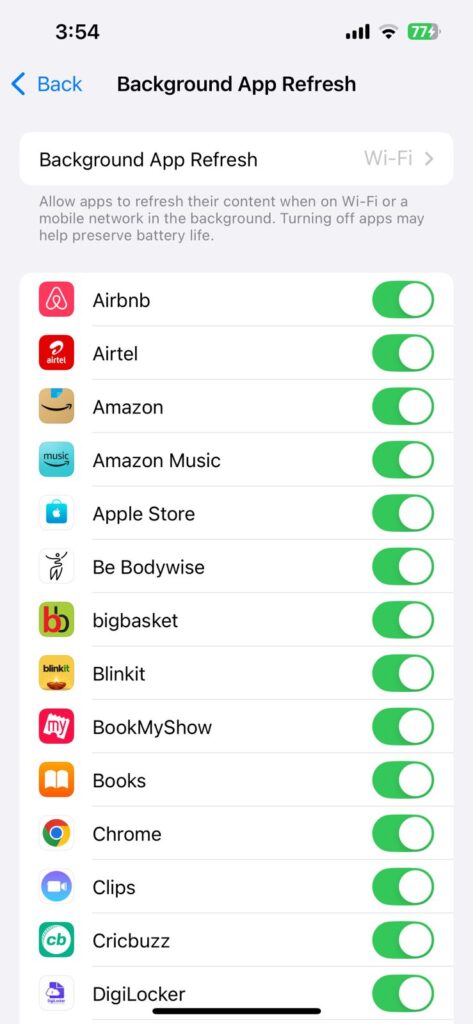
Android
Similar to iOS, multiple background apps can consume resources.
Steps: Drag up on the home screen > swipe away the apps you want to close
5. Update the software
Outdated software can lead to glitches that cause your phone to overheat. This will also trigger frequent phone overheating warnings, not all of which are accurate. Several users have reported Samsung overheating warnings even when the phone is not hot.
So, keeping your operating system updated is crucial!
iPhone
Steps: Settings > General > Software Update > install any available updates
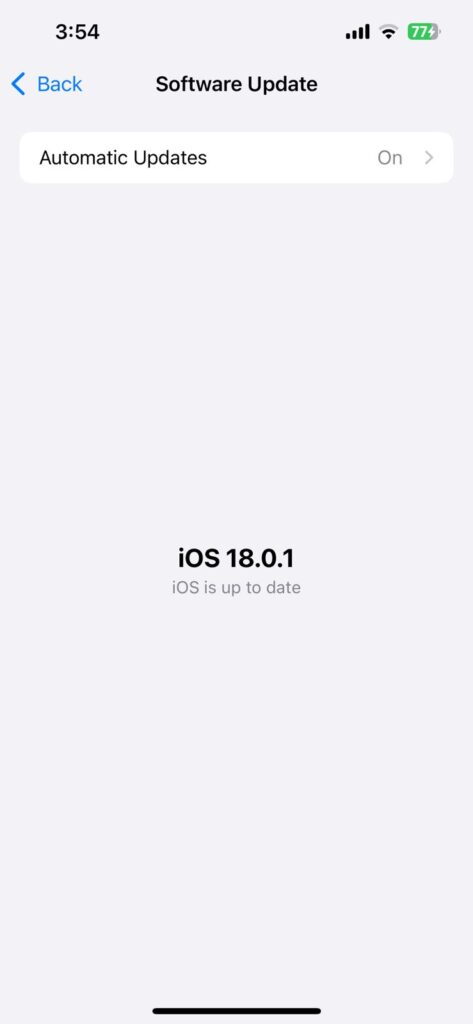
Android
Steps: Settings > System > Software Update > download and install any updates
6. Check battery health
A failing battery can generate excess heat, impacting your phone’s performance. Monitoring battery health can help identify potential issues.
Besides, a dying or malfunctioning battery can cause phone overheating when charging.
iPhone
Steps: Settings > Battery > Battery Health > if the battery is degraded, consider replacing it
Android
Steps: Download AccuBattery from the Google Play Store > monitor battery temperature and health
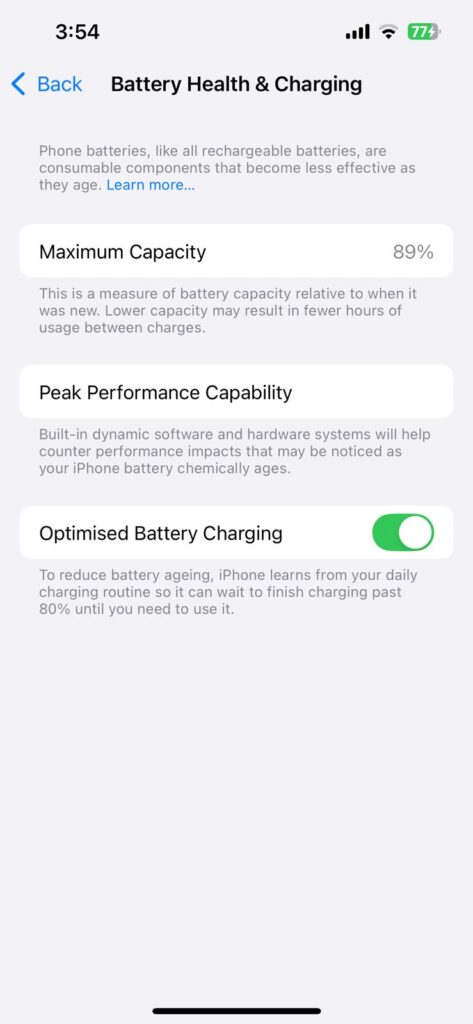
7. Check charging accessories
Using non-certified chargers, adapters, or cables can cause overheating when charging. Always ensure your accessories are approved by the manufacturer.
iPhone
- Use only Apple-approved chargers or MFi-certified accessories.
Android
- Replace any third-party chargers with the original.
8. Use a cooling app
Certain apps can overwork your CPU, leading to overheating. Using cooling apps can help mitigate this issue. This way, you can cool down a phone fast after it overheats!
Android
Steps: Download Cryo Phone Cooler from the Google Play Store > Run the app to detect and close overheating apps
9. Factory reset (Last Resort)
If persistent overheating occurs, it may be due to software issues. Performing a factory reset can help fix phone overheating forever!
iPhone
Steps: Settings > General > Transfer or Reset iPhone > Erase All Content and Settings > follow the prompts to reset
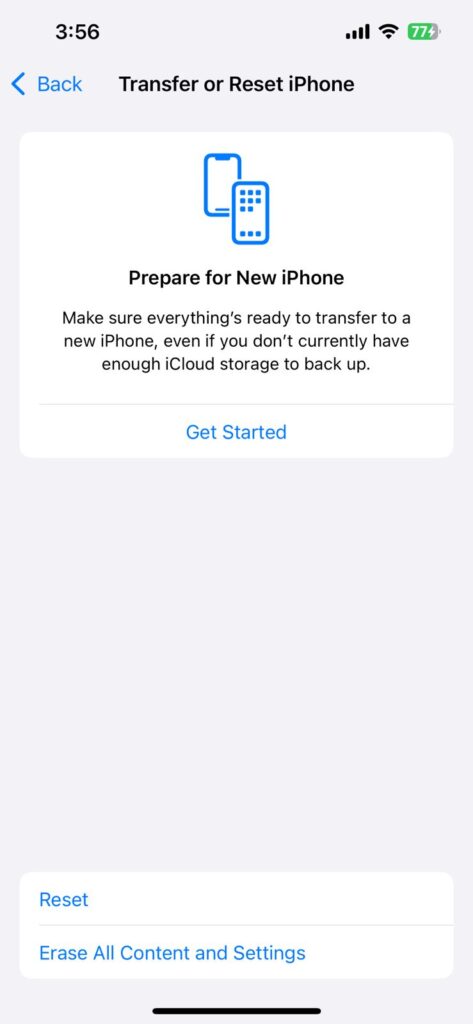
Android
Steps: Settings > System > Reset options > Erase all data (factory reset) > confirm the action
Does overheating damage a phone?
Yes, overheating can damage your phone, affecting both its performance and longevity. The impact varies depending on the duration and intensity of the overheating, but it generally harms key components in the device.
- Battery: Heat accelerates the degradation of lithium-ion batteries, reducing their capacity and lifespan over time. In extreme cases, the battery may swell or even catch fire.
- CPU/Processor: Excessive heat forces the processor to throttle its speed, which leads to lagging and slower performance. Prolonged overheating can permanently damage the CPU.
- Screen: Overheating can cause discoloration or pixel damage on the display, particularly in OLED and AMOLED screens.
- Motherboard: The delicate circuits within the motherboard can warp or get fried, rendering the phone inoperable.
- Internal components: Excessive heat can also melt or weaken solder joints inside the phone, leading to permanent hardware failure.
Preventing your phone from overheating is crucial for extending its lifespan and maintaining optimal performance. Frequent overheating also worsens battery life, causing the phone to require more frequent charging.
Regularly updating your software, closing unnecessary apps, and using certified chargers are key steps that work for both Android and iPhone!
As technology advances, smartphones will sport a sleek look, but with a ton of additional components and features. In the last few months, we have witnessed Apple, Samsung, and others offering AI-powered functions on smartphones. As a result, cases of overheating will rise unless manufacturers put in some real effort.
What do you think is the best way to fix overheating in smartphones? Share with our readers in the comments section.
Also, while you are here, find out what to do when WhatsApp is not opening grouped photos and videos!
With over five years of experience in the tech industry, Kazim excels at simplifying complex topics, making them accessible to tech enthusiasts and general readers alike.
He has contributed to several renowned publications worldwide, including WindowsReport and Allthings.how, bringing insightful coverage of key developments in the field.
When he’s not writing, you’ll find Kazim planning weekend getaways or diving into tech verticals beyond his expertise.




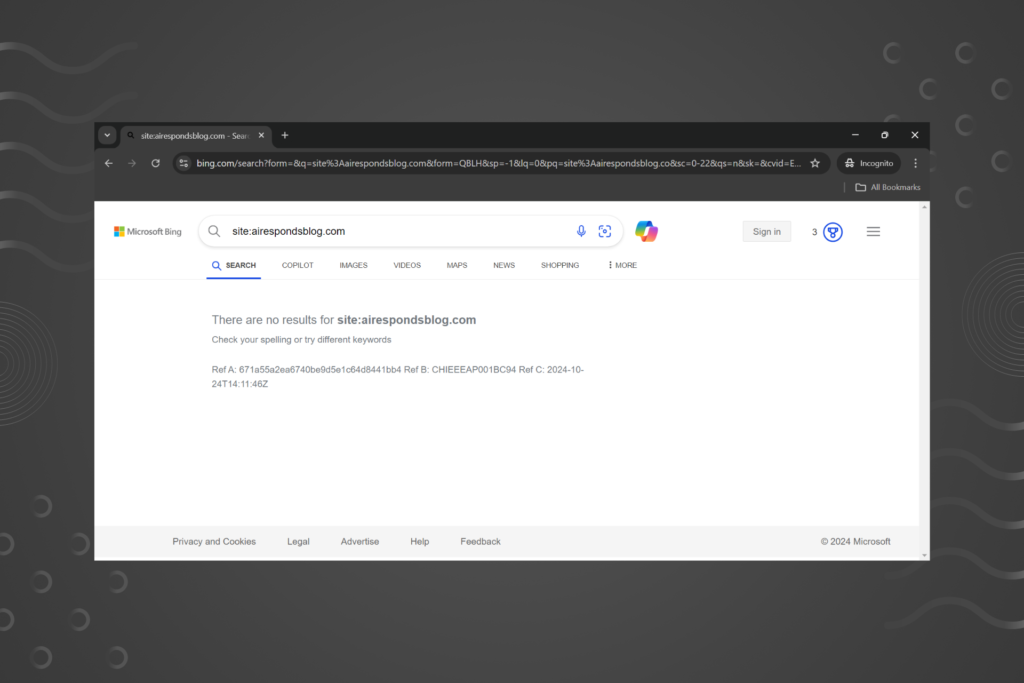
Comments are closed.